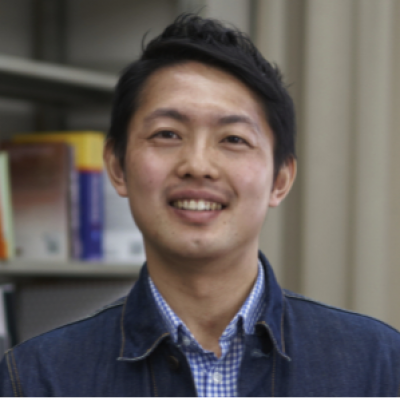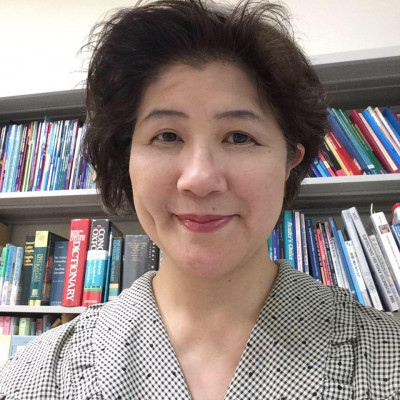Sessions / Zoom 13



Initiating a CEFR Alignment Project #382
This presentation reports on the process of aligning an existing freshman English communication course with the common European framework of reference for languages (CEFR). The presenters detail their bottom-up approach, highlighting pitfalls and successes of including instructor and student voices in the alignment process. Actual examples of the new curriculum, input and feedback from instructors, and results of a needs analysis conducted among students will be shared.

TOEIC and CEFR-J Can-Do Self-Assessment Scores #617
This replication study of Runnels (2016) investigated relationships between TOEIC L&R and CEFR-J can-do self-assessment scores. Participants (N = 54) completed an online-form with the CEFR-J statements. First, CEFR-J levels performed as predicted, with no mismatching but some overlapping of ability levels. Second, weak-to-moderate correlations between TOEIC reading and reading self-assessment scores were found, and none-to-weak for listening. The results and the implications of these findings, and in relationship to Runnels, are discussed.


Academic Writing and Mediation: CEFR-Informed #365
After the explanation of the key (academic) writing concepts in context of the CEFR (Common European Framework of Reference for Languages) and the concept of (language) “Mediation” (from the 2018 CEFR Companion volume, a download from the Internet is recommended) the workshop gives participants the opportunity to mediate concepts themselves or (in another group) to evaluate texts from students in order to familiarize teachers with mediation strategies.


Sustainable Educational Travel Program Design #477
Many Japanese universities are increasingly relying upon educational travel to expose students to various languages, environments, and perspectives as well as to foster students’ academic and intercultural communication skills. Such trips, however, often fail to address the economic, social, cultural, and environmental impacts of travel. This presentation will provide tips on how to design and implement sustainable short-term local and overseas study trips as well as how to encourage sustainable travel behavior among students.

Case Study: Study Abroad in the Philippines #681
Two trends in study abroad are changing the traditional experience. First, the length of time abroad is getting shorter. Second, more students from Japan are going to Asian countries to study English. The purpose of the study was to examine a private Japanese university study abroad program in the Philippines. In what ways can an eight-day study abroad program be successful?

Creating a Community for Encouraging Study Abroad #762
In this presentation, a case study of how to create a community for encouraging study abroad in a private university in Japan will be examined. The presenter will explain an overview of three different approaches (teaching/non-teaching staff and student groups) of study abroad advising. How the community on campus connects each other with teachers, administrators and students as well as a link between the regular curriculum and extracurricular activities will be further reviewed.

Motivation and Resistance to Language Learning #540
This presentation introduces a new approach to understanding negative attitudes towards language learning. It introduces the Linguaculture Learning Profiler (LMP), which measures learner motivation on a dual axis of engagement and resistance. It is argued that psychological resistance is a normal (though not desirable) part of foreign language learning. The theoretical approach, research aims, and methodology is introduced. The instrument will be shared with participants, and pedagogical implications will be discussed.

Promoting Curiosity in the Japanese EFL Classroom #396
Promotional Visit the Oxford University Press pageAs teachers of English working in a Japanese context a fundamental challenge we face is how to jump start student’s natural intrinsic motivation and help guide them on a path to become independent, autonomous learners. This presentation will discuss motivational benefits of encouraging curiosity in the language classroom while focusing on practical strategies to encourage English learners to actively engage in seeking information and knowledge. Featuring content from Smart Choice 4th edition (Oxford University Press).

South Korean Jobseekers’ L2 Motivation and Emotion #689
The presentation examines two research questions: (a) For what reasons do South Korean jobseekers study for TOEIC and develop English proficiency? and (b) How do they feel about learning English for job-related purposes? The findings indicate that the male participants tried hard to increase their TOEIC scores and interview English skills, while feeling intense pressure. In contrast, the female participants practiced English to move abroad because they felt that English could be enjoyable and liberating.


Motivational Change After Curricular Revision #698
This presentation will report on the changes in motivational profiles of university students following curricular revision. Data collected from students at one university in Western Japan in 2011 and 2018 were compared to determine if there was any change in the students’ motivational profiles following major shifts in the curriculum. Implications for curricular development will be discussed.

Building an International Learning Community #630
Despite the best intentions of students and staff, international exchange students often find themselves stuck in an L1 bubble with little, if any, interaction with native students. This presentation will explore the effects of a new international board game club, which was created in order to bring native and international students from varied backgrounds together and to provide them with regular opportunities to interact with, and learn from each other in a natural setting.

Enhancing NNEST Wellbeing in the Shared Domain #656
This talk explores the importance of non-native English-speaking teacher (NNEST) motivation, and self-efficacy. Teachers with high levels of wellbeing foster students who are likewise productive and motivated. Considering the significance of this relationship, why has NNEST work-life balance and wellbeing been overlooked? Additionally, JET Programme issues, together with practicum and in-service training considerations will be scrutinized. How can they be improved in order to enhance NNEST self-confidence and increase the efficacy of ongoing reforms?

SALC for Beginners - Establishing Links With Class #760
弘前大学English Loungeは8年目に入る自主語学学習施設SALCである。開放的雰囲気の許、学生は科目の合間に訪れ語学のスキルを磨く。とかく英語ができる学生のための施設と思われがちな部分を補うべく、授業後のアンケート結果を紹介し、発表者は通常の教養教育初級英語クラスとの連携の工夫を考える。

Enhancing Classroom CoPs Through Reflection #719
Communities of Practice (CoP) has without a doubt impacted the management of the language classroom and the engagement of learners. Therefore, it is important for language teachers to facilitate a more cohesive community in the classroom to enhance students' learning experience. This presentation will provide both theoretical and practical knowledge to engage students' socio-emotional perspectives for better knowledge sharing and learning.

Gender, Self-Construal, and Project-Based Learning #564
This study examines the effects of gender and self-construal on motivation, as well as the mediating effects of self-construal in the relationship between gender and motivation in project-based learning (PBL) settings. Japanese university students that enrolled in PBL English classes (N = 180) responded to questionnaires on self-construal and motivation. Results of path and mediation analyses revealed that gender and self-construal have significant direct effects on motivation in PBL settings.

Bringing Students Together Through Role-Playing #735
This presentation discusses the results of implementing a tabletop role-playing game in a university level EFL classroom. It discusses how the game can be used to help improve teamwork among the students by providing them with a common goal and helps to foster critical thinking through unscripted conversations in which students collaborate to solve a mystery. Data are derived from questionnaires, observations, recordings, and interviews.

Report on Intercoder Agreement #690
This presentation reports on a procedure of intercoder agreement I employed with two researchers in 2019. Three kinds of qualitative data were used to analyze university students’ perceptions of their school and English learning, and ten keywords were selected and coded from each qualitative data set. Several norming sessions were arranged to discuss the discrepancies between the coders. As a result, the agreement among the researchers improved to over 80%.
Good Rapport to Improve English Performances #600
This study demonstrates that young university level students are able to achieve better English academic performances when they have good rapport with the teachers, even though they are considered more independent and be aware of their learning responsibilities compared to younger learners. The aim of this study is to discover the extent of good rapport’s influence in young adult learners’ academic performances.